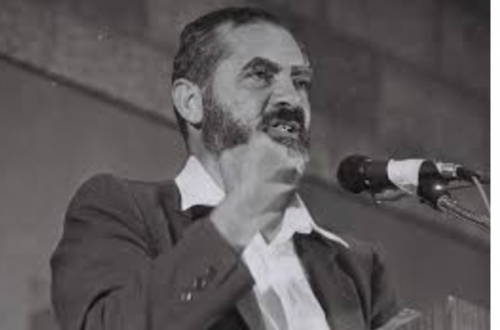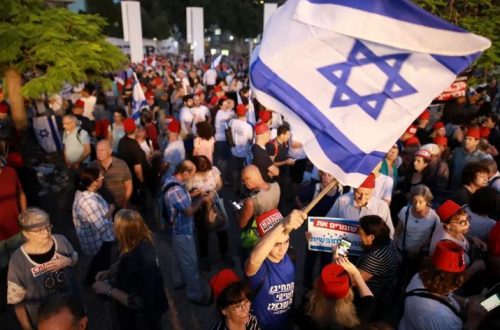This is a guest post from Alex Stein at falsedichotomies.com
The establishment of the State of Israel was one of the most inspiring events in modern history. Against all the odds, and in the immediate aftermath of the murder of six million of their brothers and sisters, a landless, stateless, and largely friendless people achieved national self-determination in the land they had dreamed of continuously for the previous two thousand years. They did this in the face of unstinting opposition from the land’s population and the neighbouring countries, opposition that was violent and zero-sum. They did this because they had no choice: to compromise on national liberation would have been suicidal.
The population of the State of Israel came from each corner of the earth. They looked different, spoke different languages, had different religious practices or none at all, and held different political beliefs. What they shared – in that most awesome and unquantifiable of places that we glibly call the soul – was the conviction that they were part of the Jewish people, and that the continued survival and success of this people was worth striving for. The new state built roads, towns, farms, universities, hospitals, and extended the reach of the national language, Hebrew, to every citizen. This was done at a dizzying pace, by one of the most dynamic generations of leaders and activists that any nation could hope to have. Within a decade or two, it seemed as if Israel had existed from time immemorial.
This state-building was always done under the shadow of violence, and Israel was often at least partly responsible for the circumstances which so often led to war. Its leaders did not place enough of a premium on the importance of peace. The external threat was used to hold the new nation together, and land was often preferred to peace treaties. But there can be no doubt: had the Arab world ever laid down its guns, the war would have ended. Despite Israel’s excessive use of violence, it was always used in response to the largely unceasing and frequently anti-Semitic and occasionally genocidal rejectionism of its neighbours.
None of this justifies our failure to deal with the Palestinian question. Our redemption has been their dispossession. Our success has been their misery. Yes, they also bear responsibility, but this does not excuse our failing to provide them with the sovereignty that we cherish ourselves. The festering of this failure now threatens the very foundations of the state; our leaders must stop procrastinating and take the steps that we all know are needed if Israel, and Palestine, are to have a future. These steps, which will surely include the wholesale dismantling of settlements, must be taken with or without a partner.
The same applies to the problems facing Israeli society. Minorities must have their rights guaranteed, the welfare state must be strengthened, and religious freedom must be given to all. Hi-tech may get us on the cover of Time magazine, but it will not feed the poor of South Tel Aviv. Our schools must be valued as much as our army or our Mossad. And the strangers among us must be welcomed, for we too were strangers in the land of Egypt. On these issues we are not doing as badly as they say we are, but nor are we doing as well as we like to think. We must set the standards – set them high – and we must stick to them.
And yet on the eve of our sixty-third birthday, in a world where deconstruction is all and the tiresome and banal unravelling of identities is worshiped like a false god, where Zionism is at best racism and at worst evil, the most radical thing we can do is to take pride in what we have achieved, the small miracle of the country that we have created, the sheer vibrancy and self-confidence of the place, and say, thus far and no further: there are some things we cannot give you. Even if you tell us we are defying international norms and making ourselves into a pariah state, we cannot budge. I am part of one of the most extraordinary national liberation movements in history, and if you force me to choose, it is to this that my loyalty will lie. I am a Zionist, and tonight it is our birthday.


